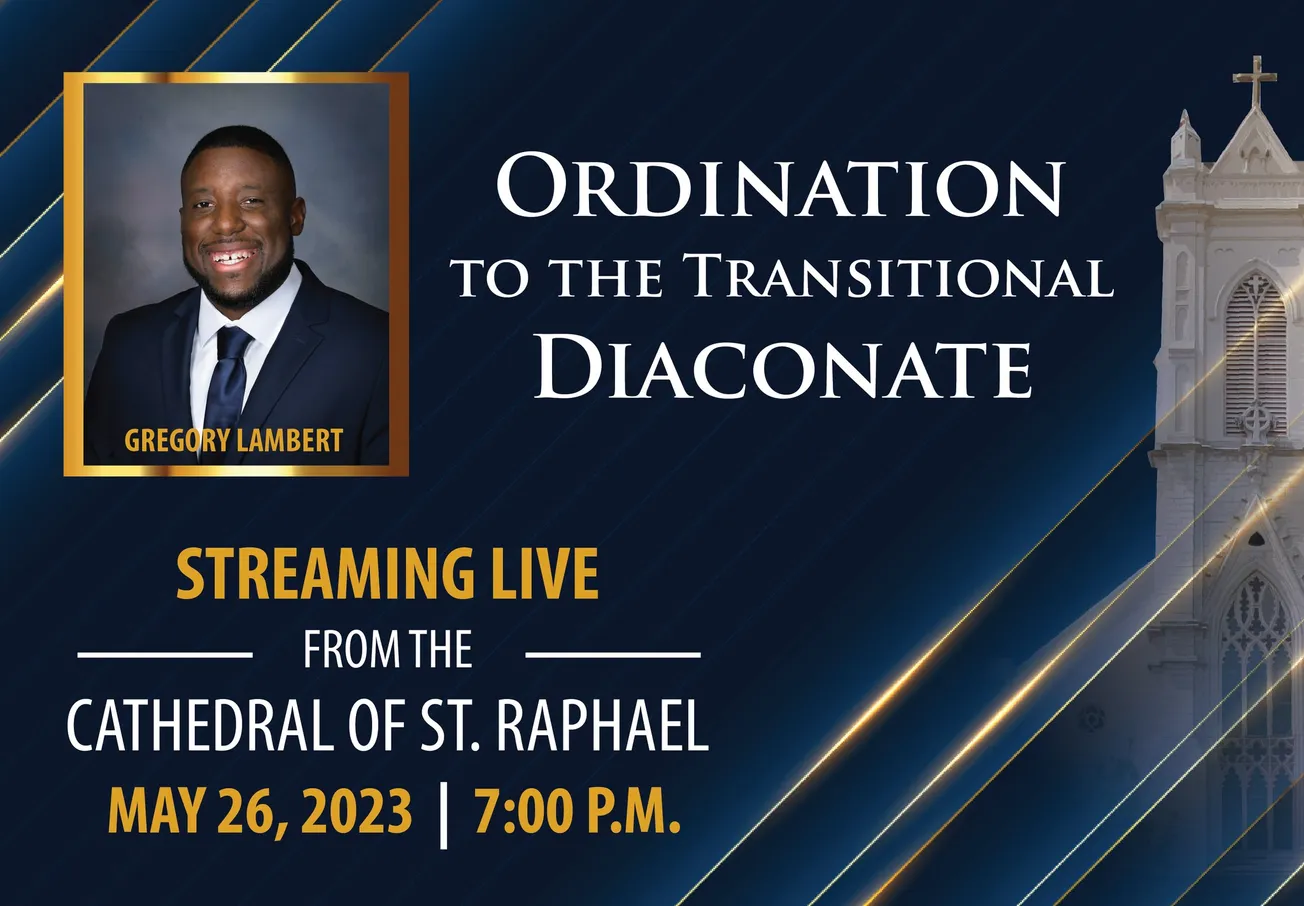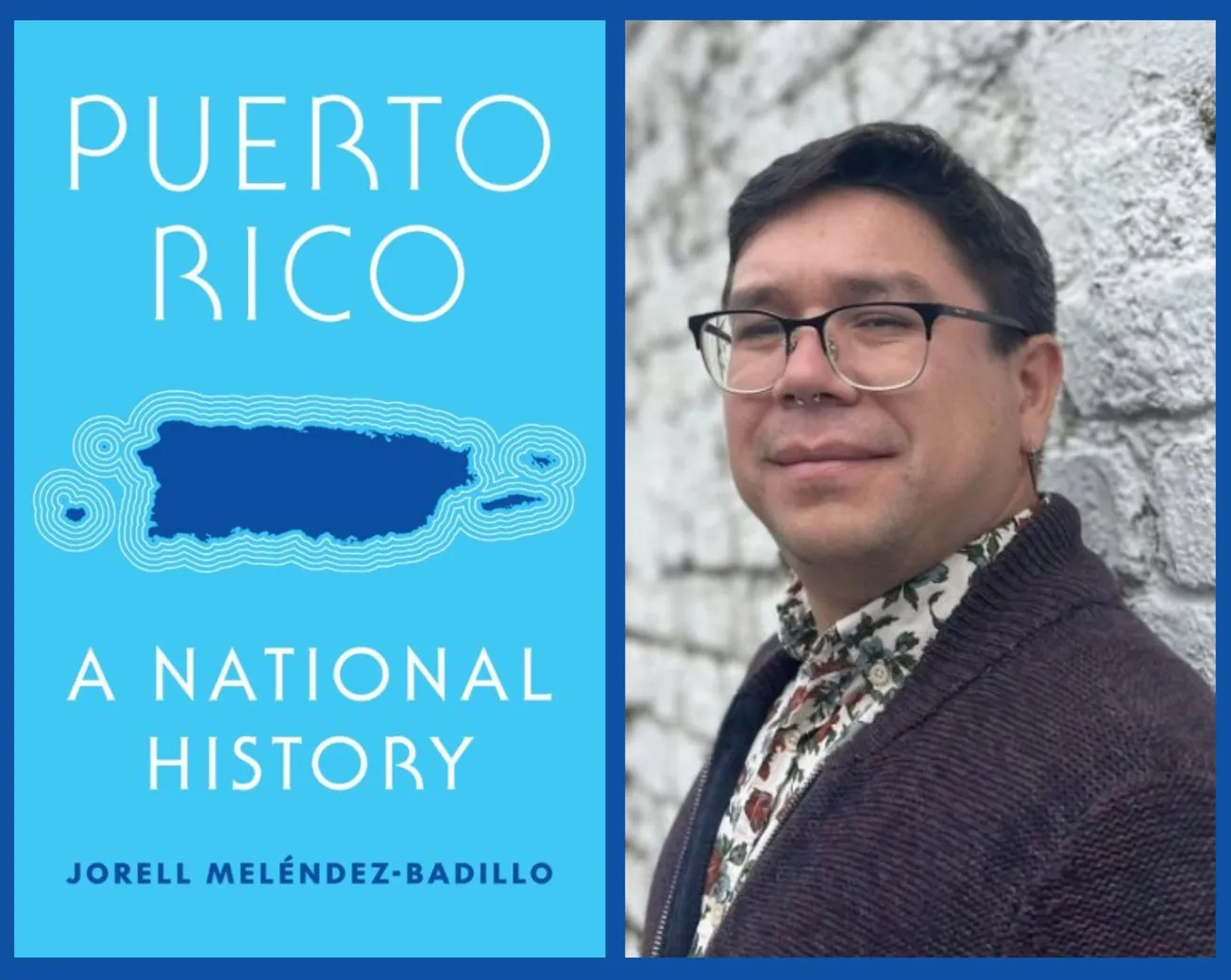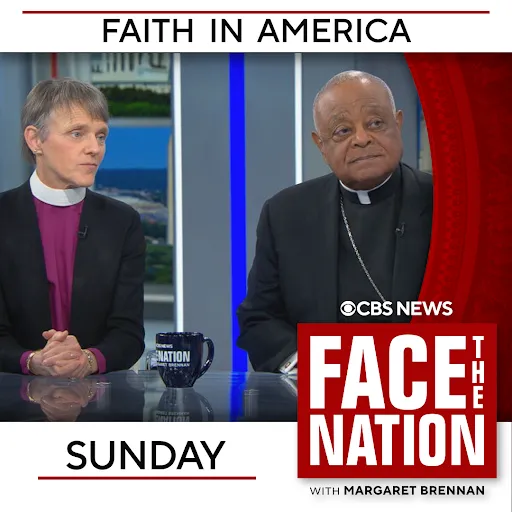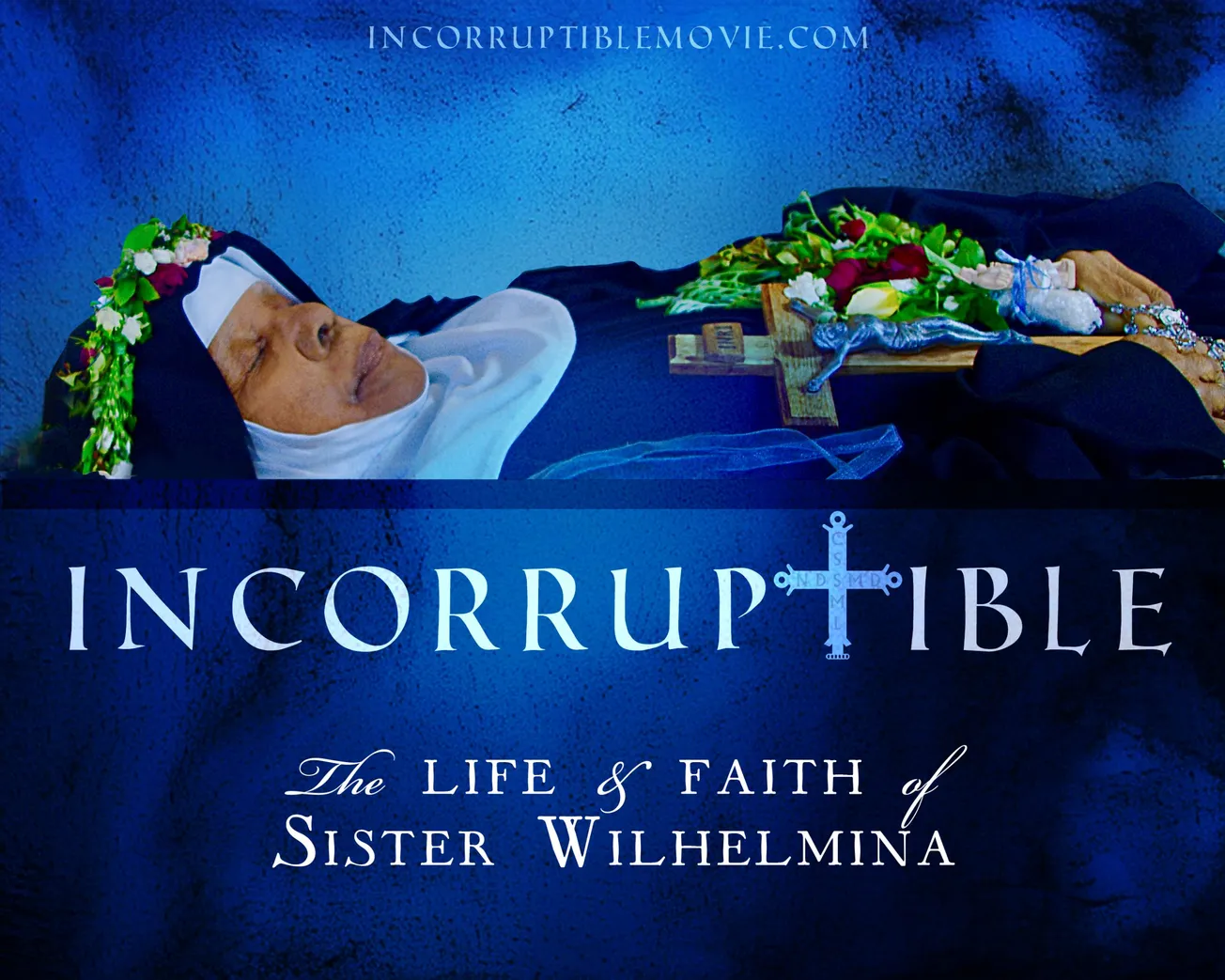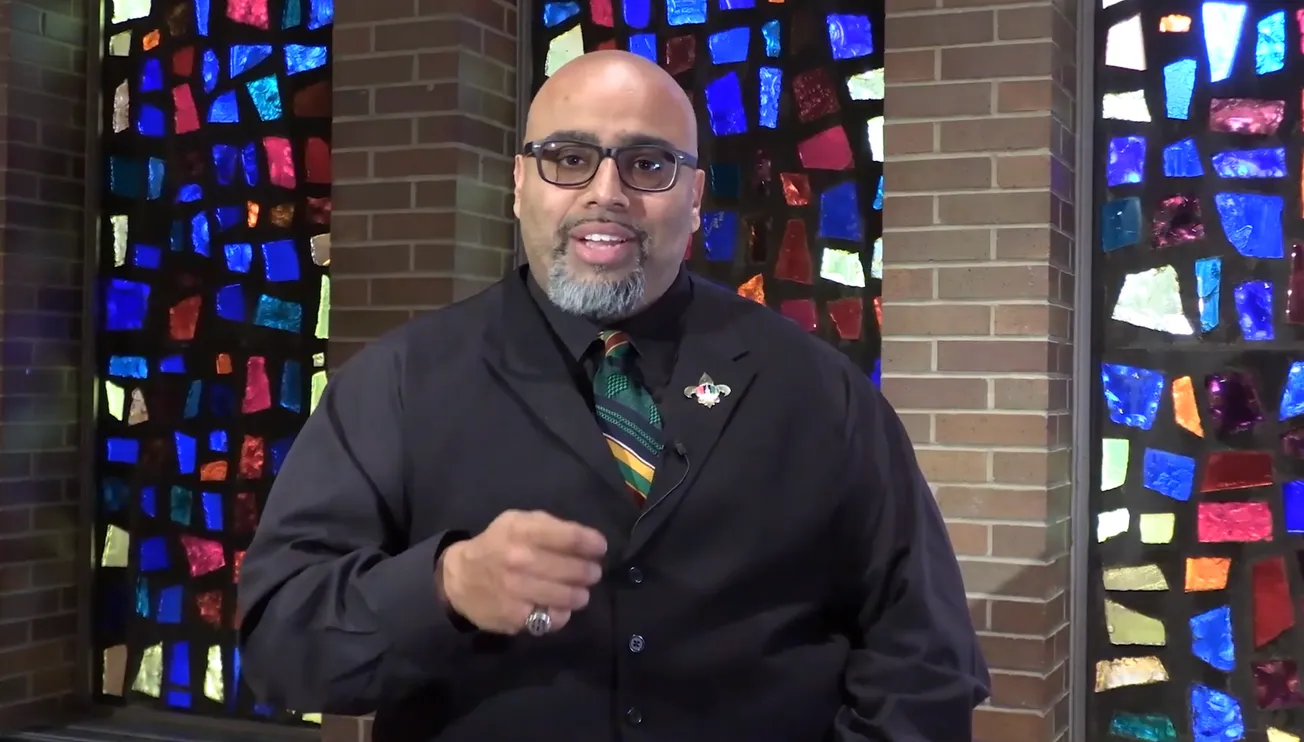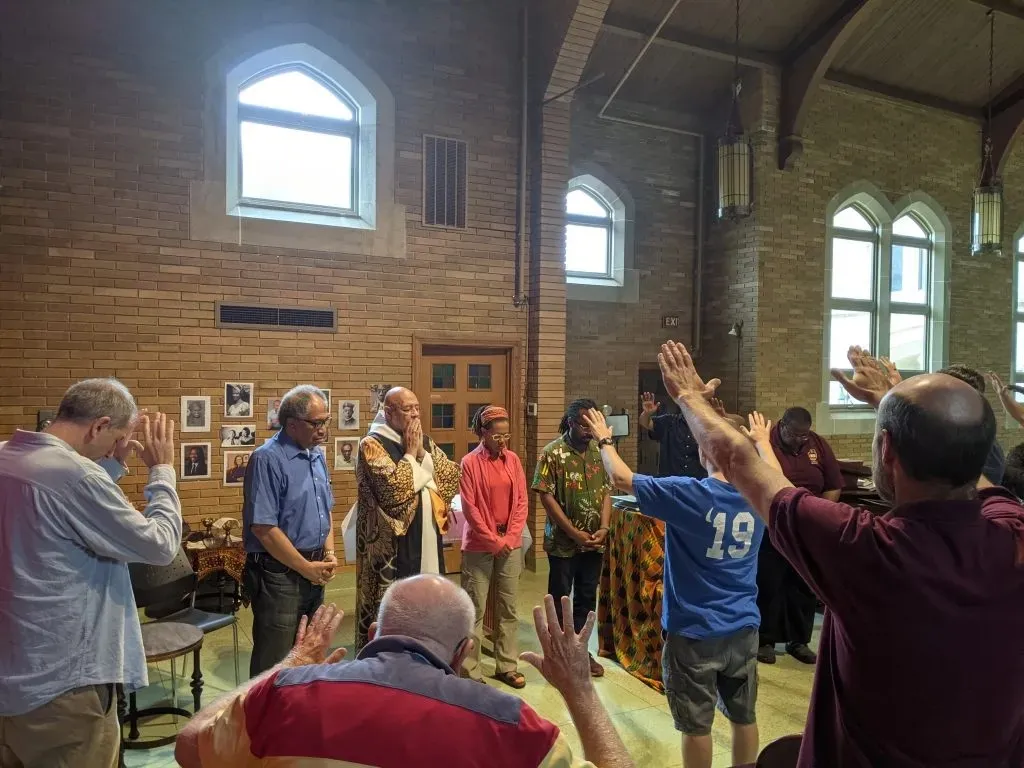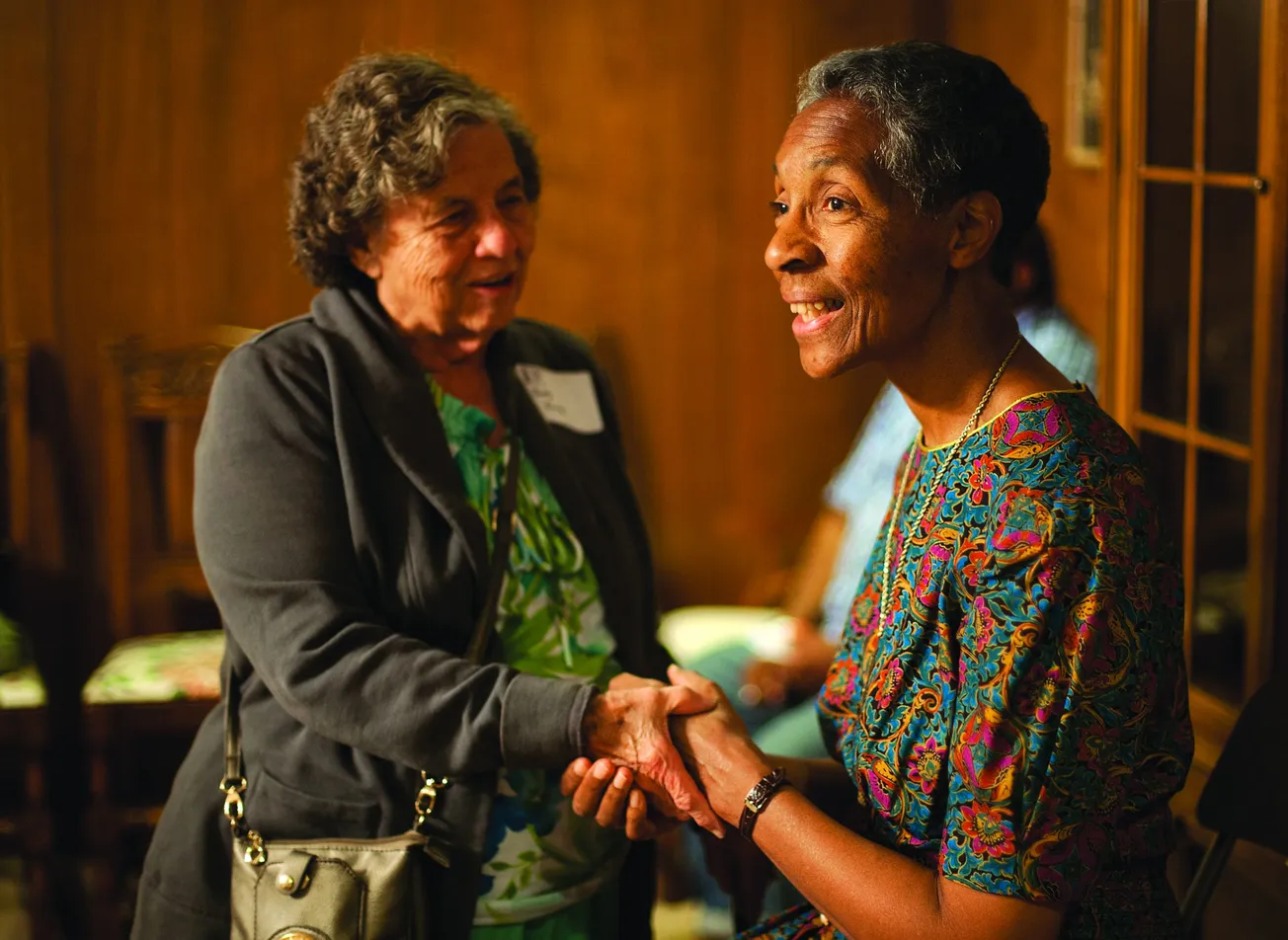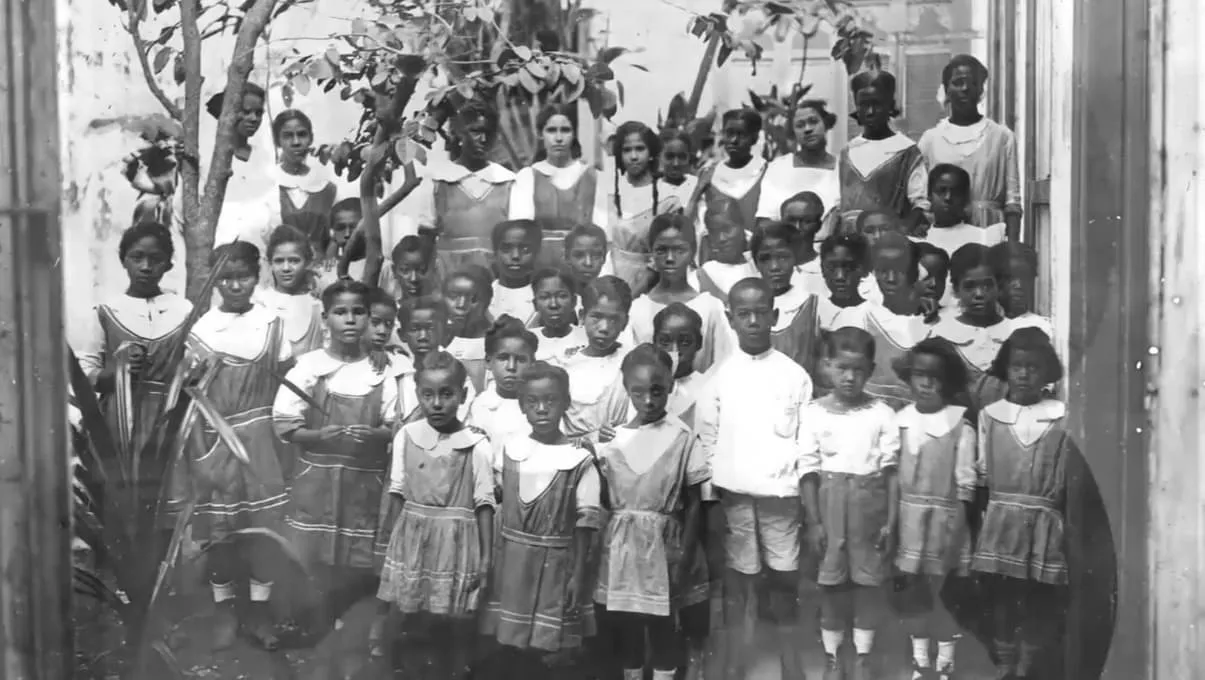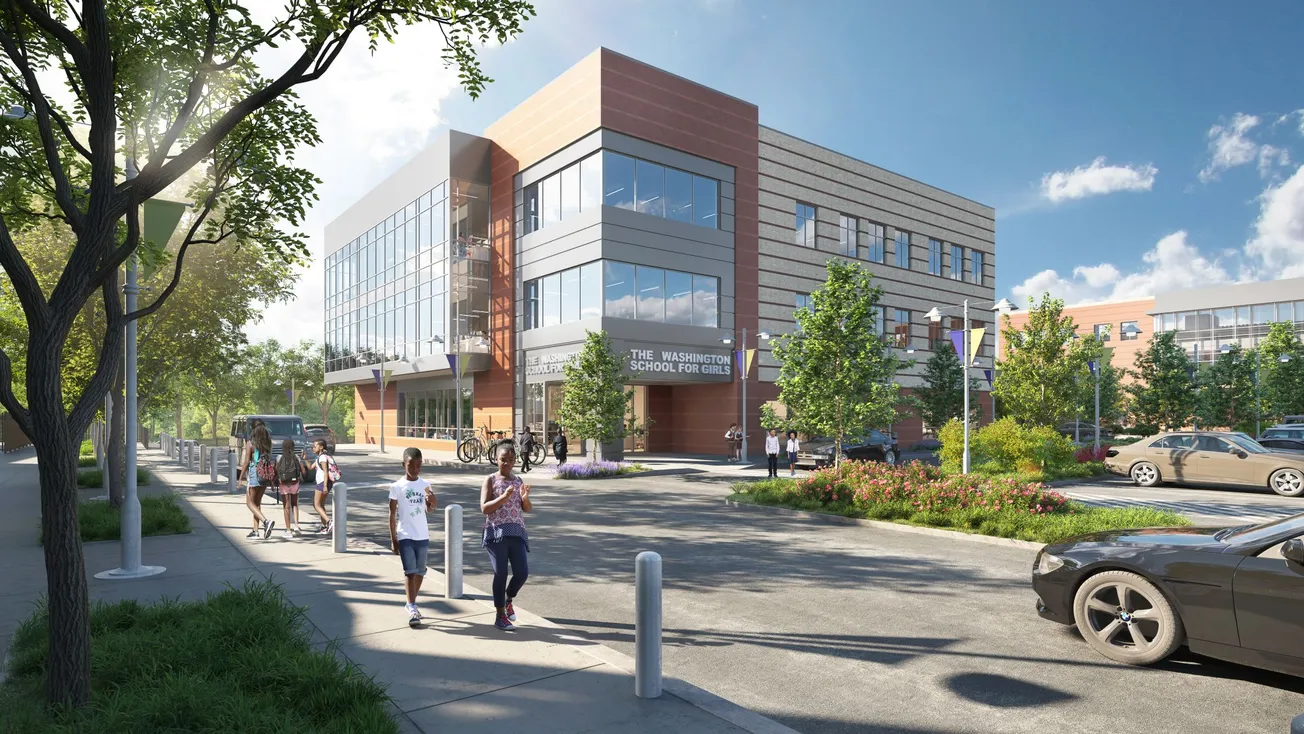On Friday, May 26, at the Cathedral of St. Raphael in Dubuque, Iowa, Greg Lambert will be ordained to the transitional diaconate, the penultimate step on his road to the Catholic priesthood. He is to be the first African-American priest in the history of the archdiocese, and today he speaks with BCM about his journey to the seminary and how he plans to minister to a unique community in the Upper Midwest.
This interview has been edited for length and clarity.
Nate Tinner-Williams: Firstly, congratulations on your upcoming ordination. Incredibly exciting news for your community and archdiocese. How does it feel?
Gregory Lambert: It’s an honor to be here. I feel great honor to be a member of the Black community and able to be ordained as a transitional deacon on my way to becoming a priest. I know that those before me have gone through a lot to get to this point. So it's something I don't take lightly.
NTW: Can you tell me about your call to the priesthood?
GL: I was born and raised in Melbourne, Florida, and raised in a household that actually practiced Buddhism. I didn't think it was that strange until I told all my friends. I would be like, “Oh, you know, I'm Buddhist.” And they would respond to me with the same answers, like a lot of “I'm Methodist” or “I'm Christian.” I had to figure out I was kind of the odd one out.
But I really appreciated my Buddhist faith because for the Buddhist, they believe in a lot of meditation and centering and being able to go deep within oneself and find their inner strength. That true, unmovable strength and truth about who oneself is, located at the core of who they are. That’s meant to be reached through meditation. So for the Catholic faith, it kind of translated into my faith. I already knew how to meditate. I already knew how to keep quiet. I already knew how to look within myself and the Catholic faith teaches that the more we look within ourselves, we find God instead of just our truest self. It's God who gives us our purpose, our direction, our reality. So it wasn't that far of a jump for me.
NTW: And how did this jump occur?
GL: Well it wasn’t really of my own volition. My mom, who was the leader of our family, got converted by a friend at work. My mother was raised Catholic and then fell away from the faith. So she looked at us and said “I want to make sure that you guys get baptized,” even though she wasn't a practicing Catholic at the time. She wanted us to be baptized and confirmed because that still held importance to her in her own life. So she wanted to make sure that her children had that. So I went through RCIA and I learned all that I could. I was about in eighth grade, 14 years old. I wasn't the best student. I was very inquisitive. I was very curious. I'm still a very curious individual. But it took a while to get to that point where I held my faith as my own and not something that my parents were asking me to do and participate in.
NTW: How long was it between then and when you first entered the seminary? How did that happen?
GL: When I entered high school, I got invited to a youth group, where I met friends who to this day are some of the best people I have ever met in my entire life. I'm still in contact with a lot of them. I've been to their weddings. I've been to the baptisms of their children. Amazing people that helped me push my own faith and my own self-knowledge. That was the catalyst to make me ask the question: “What do I look at as a priority in my life? Who is God in my life? What are my actual skill sets and talents?”
It seemed overwhelmingly toward priesthood. I love people, I love speaking about my faith. I feel not just generally called to this but I truly feel drawn to this lifestyle that I want to live, which is within the priesthood. Everything about who I am in my character is in sync with this vocation. And that doesn’t happen unless I had really good people that I met in youth group to be able to push me towards that.
NTW: That's beautiful. I have fond memories of my youth group experiences. That's really when my faith blossomed, and around that same time in my life. So that's wonderful to hear.
I understand you entered the seminary in Florida. How did you end up in the Archdiocese of Dubuque?
GL: I applied to seminary right out of high school. I got admitted to St. John Vianney College Seminary in Miami. I did about four years there for the Diocese of Orlando. Then I graduated and went on to St. Vincent de Paul Regional Seminary in Boynton Beach. After about three years at St. Vincent’s, I had what we call a pastoral year. So instead of being in the classroom, they send us to a parish for a year and we go through the entire liturgical calendar in a parish setting, which I think is very beneficial to formation.
So I finished that year, and that made seven years of seminary formation. Toward the end of that pastoral year, my bishop approached me. It wasn't a hang-up, but his curiosity was, “Is there anything that you want to do before you take this commitment? Because once you become a transitional deacon, we at the diocese have an expectation that you will then become a priest. So we don't really want any surprises on your part or on our part either.”
Me being stubborn and very direct on my goals, I said, “No. There's nothing I want to do, Bishop. I want to go ahead and go forward.” But after just stopping and taking it to prayer the way that I should have done after a couple of days, I realized I had never really had a real job. I had never got an opportunity to travel. I had known what I was going to be doing or where I was going to be every single semester for the previous seven years of my life. It was a lot. There was no unpredictability in my life—outside of what the Lord wills, you know—but I was just thinking: if I was going to go somewhere for a year and do something, what would I do?
Lucky for me, my brother had gotten married and lived in Dyersville, Iowa. So I knew that if I wanted to take a year off, I knew where I could go. And he welcomed me with open arms. So that's what I did and that's how I got to Iowa.

NTW: That is certainly a unique journey. How have you liked Iowa?
GL: You know, it took some getting used to. I had been here, coming back and forth, for years. When I was in seminary in Florida, I would come up to Iowa for vacation. I've gotten used to the people. It is a different speed than living in Florida, as you can imagine. They move a little bit slower out here, but the whole “Minnesota Nice” thing or “Midwest Nice,” that's a real thing. They are very kind people. It took a period of about six months to get out of my big-city mentality.
It softened my heart towards people who are different from me. I'm from Florida. I know other cultures, I speak a little bit of Spanish, I’m okay with different types of people from different parts of the world coming and talking to me. I can be open-minded and I thought that I was. But it wasn't until I was in a place where I was so much the minority, so much different than everybody else, so much darker than everyone else, and of a different background, that I was forced to be open-minded to someone else's way of life that maybe I didn't want to. It took practice.
Luckily, I have a really great family around me. I have the support of the community, which is something I did not expect. This community has been nothing but open arms, which is honestly very beautiful. I'm very humbled that these people feel so much for me.
NTW: That’s wonderful. As someone who hails from the Midwest myself, I can confirm there’s a certain charm. The weather was never too agreeable for me, but yeah, great people.
So when I read that you were in the Archdiocese of Dubuque, I knew in my head that one of the first 10 openly Black Catholic priests in the United States studied there, at Loras College. Were you aware of that?
GL: I was. Fr Norman Dukette, who ended up going to Flint, Michigan. His story is incredibly inspirational. I'm just happy to be a part of this great history. It's crazy to me that he was a graduate of Loras and now here I am. I'm going to be the first African-American priest ordained in its 186-year existence. It's wild to me. And this is all confirmed. We've looked at all the records. Except for Des Moines—that's the only diocese where we don't really know for sure—I might be the only one ever in the state, which is crazy. I don't know how that happens. But here we are.
NTW: Making history, right here and right now.
GL: Inadvertently, but hey, I'll take it.

NTW: Do you know where your diaconate placement will be?
GL: I'm going to be assigned to our cathedral, St. Raphael. So I'll be assigned to the same place where I'm being ordained, which is actually really cool. I'm very excited to start there. It’s in the city’s wonderful downtown area. They have another attachment, St. Patrick’s, which is a sister parish with a predominantly Hispanic background. I'm just ready to grow into my identity as a clergyman here in our archdiocese, and I'm just happy to be part of the team.
NTW: Absolutely. It's inspirational. And speaking of inspiration: what would you tell a Black person such as yourself who's discerning a priestly vocation in the Catholic Church in this modern age?
GL: I think about this question a lot. And I think the answer to this question changes as history goes on, and also as I get older and I gain a little bit of wisdom. My advice to any African-American man who is thinking about this vocation—or even not thinking about this vocation—is to remember the role models. Find yourself a role model, because in this time, as the future keeps on getting more divisive, the role models that we have today, especially in the Catholic Church—the Black men who have come through this church—are not here because people wanted them to be here. They're here because they found the way and God willed it and God ordained it. So to look at these men, it means something that they made it this far. It means something that they're the first. It means something that they're some of the torchbearers of our future.
Look to them and see what it was that got them through. Was it the support they had in the community? What was their faith life like? And cling to that, because if they made it through, that means that someone else can make it through as well. And we're not just talking about, you know, Fr Norman. We're not just talking about Venerable Augustus Tolton. I'm going to be that as well. There are so many firsts and I'm not gonna be the only one. That's the thing that keeps me hopeful that there will be others after me.
NTW: Amen, that's what we pray for.
Again, I must say congratulations on making history, and thank you so much for saying yes to God and to the people of the archdiocese. They are going to be blessed by your ministry. People need to see this and they're going to love to see it. So again, congratulations.
GL: Thank you so much and I just ask that you and anybody who hears this story continue to pray for me and my ministry and also for our wonderful archdiocese. I think there are great things on the horizon for all of us.
NTW: Amen. And maybe they should even come visit, right?
GL: Absolutely. Come on down. It’ll be great. It’s gonna be a party.
NTW: Thank you so much for speaking with me.
(The Ordination Mass for Greg Lambert will begin on Friday at 7pm CT. Livestreams will be available on YouTube, Facebook, and the website for the Archdiocese of Dubuque.)
Nate Tinner-Williams is co-founder and editor of Black Catholic Messenger.


